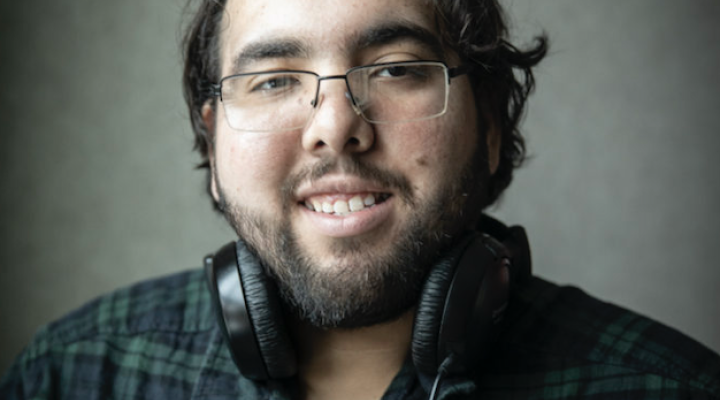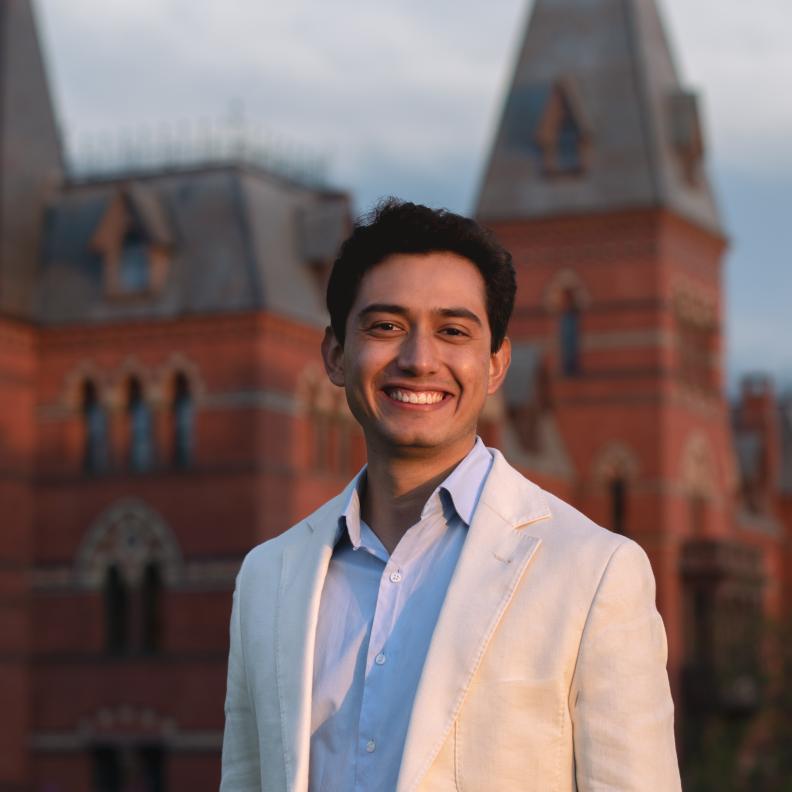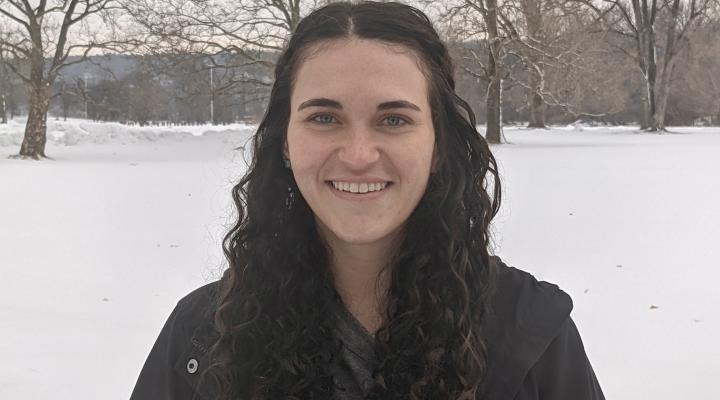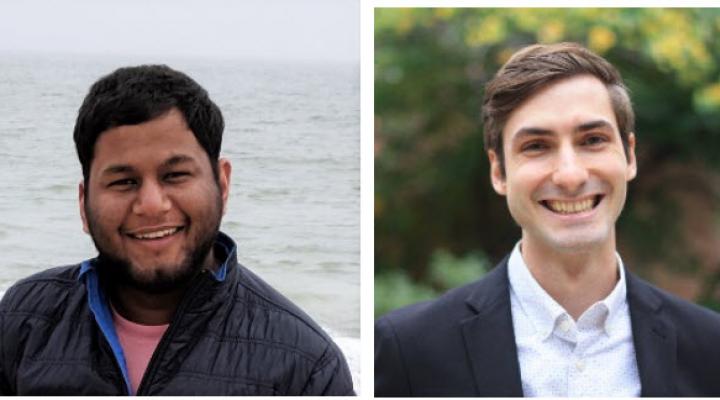(If you arrived at this page expecting to find a profile of Ambika Pachaury, click here!)
Jesus Miguel Lopez Baltazar has always had a penchant for mathematics and chemistry and possessed a drive to tackle complex questions. An early experience competing in the National Chemistry Olympiad in high school for his hometown Ciudad Guzmán team in the Mexican state of Jalisco solidified his passion for science. It also confirmed for Lopez Baltazar his goal of pursuing a doctorate. Now at Cornell, Lopez Baltazar hopes to solve a highly impactful multidisciplinary problem: a fast, accurate, and noninvasive means of testing for certain cancers.
Lopez Baltazar is a fifth-year doctoral student in the lab of Professor Qiuming Yu in the Robert Frederick Smith School of Chemical and Biomolecular Engineering (CBE). “I am developing the surface chemistry for a type of biosensor that would allow for early-stage cancer screening via the detection of membrane proteins found in vesicles that all cancer cells release,” Lopez Baltazar said.
Growing up in Guzmán with parents who were both teachers, Lopez Baltazar knew that he wanted to go to grad school and eventually become a professor. Once he took his first high school chemistry and physics classes his path started to become a little clearer. “I knew I wanted to pursue a career that combines math, chemistry, and physics,” explained Lopez Baltazar, “and chemical engineering was a great field for me to do just that.”
After high school Lopez Baltazar moved to the San Fernando Valley in California, where he enrolled in Los Angeles Mission College--a public community college. Before he could take the science, math, and engineering classes he was so eager to get to, he first had to improve his English language skills. “It was a gamble; moving to a new country was challenging,” Lopez Baltazar recalled. “At Mission, I was starting all over, learning English. It turned out to be such an enriching experience. I was in classes with people of all ages—some of them were much older than me and they had families. It gave me a whole new perspective.”
Lopez Baltazar studied at Mission for three years and then transferred to UCLA, where he majored in chemical engineering. During his years at UCLA he participated in three Research Experiences for Undergraduates (REUs), spending one summer at Northwestern University, one at UC Davis, and one at Peking University. That particular summer at Peking University in Beijing, China was a pivotal moment for him. Studying nanoparticle synthesis “clicked” with Lopez Baltazar — sparking his commitment to focus on the field of self-assembly in grad school.
Cornell’s strength in the field made it an obvious school to apply to, and when Lopez Baltazar was accepted he says the depth and breadth of expertise in the Cornell faculty made it the right place to go. He worked for three years with Professors Chris Alabi and Tobias Hanrath, earning his Master of Science, and continued his journey in subsequent years towards his Ph.D. with Professor Qiuming Yu. “My preparation resulting from the mentorship, guidance, and support from my advisor Qiuming Yu has allowed me to coherently combine the expertise from my previous experiences and do what I am doing now- functionalizing surfaces with the right receptors to detect a target molecule or analyte,” Lopez Baltazar said.
For the table-top testing instrument he and Yu hope to create, the surface chemistry of the biosensor must be correct. A device used to test for the possible presence of cancer should not have a significant margin of error. The stakes are simply too high. Lopez Baltazar has been immersing himself in the literature and taking classes to get himself up to speed on the biological knowledge he needs to make these biosensors functional. He was recently awarded a fellowship from the National GEM Consortium sponsored by Cornell and MIT Lincoln Lab, where he spent the summer working on projects for the Department of Defense and greatly expanding his knowledge of biosensing and surface chemistry. Lopez Baltazar also earned a National Science Foundation Graduate Research Fellowship (NSF GRFP) to support his first three years at Cornell.
In addition to his work on a non-invasive cancer screening device, Lopez Baltazar has also been very active in the Cornell Chemical Engineering Graduate Student Association (CHEGSA). He has served as President and Vice-President for two years each and was awarded the Exemplary Service Award as well as the Graduate Student Excellence in Leadership Award from the Cornell Graduate School and Diversity Programs in Engineering (DPE), respectively. These awards were in acknowledgement of his successful efforts to make a positive impact on the Smith School by advocating for greater departmental transparency and inclusion of student voices.
Once Lopez Baltazar graduates, he hopes to build his own lab, mentoring and encouraging his students to be leading scientists and engineers. He intends to take everything he has learned at Cornell and apply it back to his true love—colloidal metal nanoparticles—to see how he might discover innovative ways to control their self-assembly. Just as importantly, as a first generation Mexican in engineering, he hopes that his story inspires younger students of similar backgrounds who have a passion for STEM to pursue graduate studies and a career in academia.






